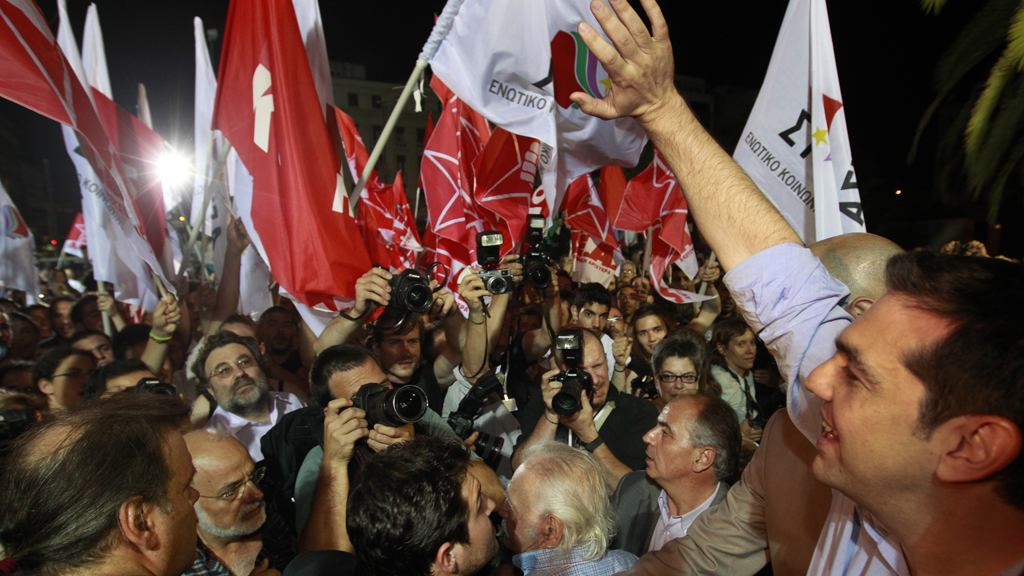
This is the first of four article installments running throughout the week.
When viewed from the outside, the relationship of the Syriza party with the grassroots movements that have been resisting austerity on the ground in the past five years can easily be idealized. After all, both were responses to a barbaric attack on the Greek popular classes, and both aimed to put an end to neoliberal structural adjustment. A closer examination, however, demonstrates the fundamental differences between the two projects, and can reveal that their confluence was a mere marriage of convenience that ended in a bitter divorce.
Does this engagement of the grassroots with political power always have to end in disappointment? Is there anything a “progressive” government can do to expand the field of action for emancipatory efforts through the promotion of social self-initiative? Is the state an appropriate instrument of social change for those who seek to transform everyday life and social relations from the bottom up?
Crash Landing
The crash landing of the once meteoric Syriza project has been a traumatic event not only for the Greek middle and lower classes, which had deposited a lot of their hopes on the promises of the party to reverse the Troika’s nefarious austerity measures, but also for the European left, which envisioned a change of course for the project of European integration, and saw in the face of ambitious Alexis Tsipras a leader who would be up to the task.
It is now painfully clear that, despite the Greek government’s intentions, the strategy of pursuing a reversal in the terms of austerity without breaking with the institutions of neoliberal domination—the EU, the Eurozone and the IMF—has backfired. Its negotiation tactic, that is, to use mere force of argument to try to convince the hardened ideologues of the EU and the IMF that austerity in Greece has not only created recession and misery, but has also failed to make the sovereign debt any more manageable, has utterly failed. The real agenda of said institutions is the continuation, at any cost, of a set of policies that facilitates the penetration of capital in all spheres of life.
This is because European capitalist elites are facing a crisis of their own—a crisis of profitability, provoked by the race to the bottom among capitalist superpowers. The preferred way out for the European capitalist class is to maintain their levels of profitability by turning their own crisis into a social and environmental crisis: on the one hand, to lower production costs by compressing wages and externalizing the cost of social reproduction (resulting in precarization as well as the dismantling of public healthcare, education, benefits, and so on), and on the other hand to create new opportunities for accumulation by commodifying ever more spheres of the social and natural world (again, through the privatization of healthcare, education, infrastructure, but also of water, energy, land and minerals).
In this respect, there is no better excuse to bring about this transformation than to capitalize on the sovereign debt crisis. The structural adjustment of the Greek economy is a prelude to the transformation of social relations across the whole continent in favor of capital. The outcome of the negotiations is a reminder that governments cannot simply “opt out” of this process.
Unconditional Surrender
The terms of the Greek government’s surrender to the neoliberal forces in Europe are humiliating. Not only were there no concessions made to the new government, but the “partners” went out of their way to make sure the measures would be punitive and disproportional. Some analysts even argue that the current program is designed to fail, creating further pressures for adjustment and holding the people of Greece hostage.
Not only has the Syriza-led government foregone the totality of its electoral “Program of Thessaloniki” to alleviate the humanitarian crisis, but it was forced to enact a series of harsh measures designed to further dispossess the middle and lower classes through horizontal cuts and unjust taxation, privatize major public infrastructure—ports, highways, airports, water and energy companies among them—and hand over political sovereignty to the institutions of the Troika.
In an ironic turn of events, the government has disregarded the overwhelming popular rejection of austerity in the July referendum and adopted the exact same arguments of the previous administrations to push through a set of measures that are disastrous for the social majority, all the while maintaining the rhetoric of social justice and opposition to the oligarchy. Tsipras’s main priority is that the “first-ever left-wing government” holds on to power, even at the cost of having to implement a thoroughly right-wing structural adjustment program. What we are witnessing, then, is a renewal of the political elite without a considerable change in the underlying politics.
Tsipras’ newly-adopted “responsible stance” and “pragmatism” is now applauded by the most unlikely allies: the European elites and the right-wing opposition in Greece. And the European hawks have plenty of reason to celebrate: it would be unthinkable to impose such a far-reaching austerity package under the previous, fragile and isolated right-wing government. It took a new, progressive government with enormous reserves of political capital to be able to do that.
Austerity With a Human Face?
Syriza's new political project, that of being a more benign administrator of capitalist barbarity, signifies its transformation into a moderate, centrist, social-liberal force: the party has completed in only a few months the rightward trajectory that European social democratic parties took decades to complete. This development is attested by the split of the party’s left-wing and its molding into an anti-eurozone, anti-austerity force that goes by the name “Popular Unity” —intentionally reminiscent of Allende’s front of the same name in 1970s Chile.
These developments also put into question the basic programmatic premises of the entire European left: has the fight for “less austerity” and “more growth” become the insurmountable horizon of emancipatory politics today?
Indeed, of all of Syriza's mistakes and betrayals, this one is the most damaging for the cause of social emancipation: in its quantum leap from anti-austerity left to social-liberal centrism, Tsipras and his team of pragmatists have imposed a peculiar “End of History” on the Greek population: neoliberal adjustment is viewed as something inevitable, much like a natural disaster, which needs a heroic and determined public administration to alleviate its effects on the people, to manage the misery and destruction it causes.
And although Tsipras still has a good chance at winning the general elections—imminent at the time of writing—the phrase “there is no alternative” sounds absurd when uttered by politicians who nominally belong to the radical left. Yet it sounds even more absurd as an argument directed at a society that has for several years now been proposing and implementing countless radical alternatives from below.
Theodoros Karyotis is a sociologist, translator and activist participating in social movements that promote self-management, solidarity economy and defense of the commons. He writes on autonomias.net.
3 WAYS TO SHOW YOUR SUPPORT
- Log in to post comments
















